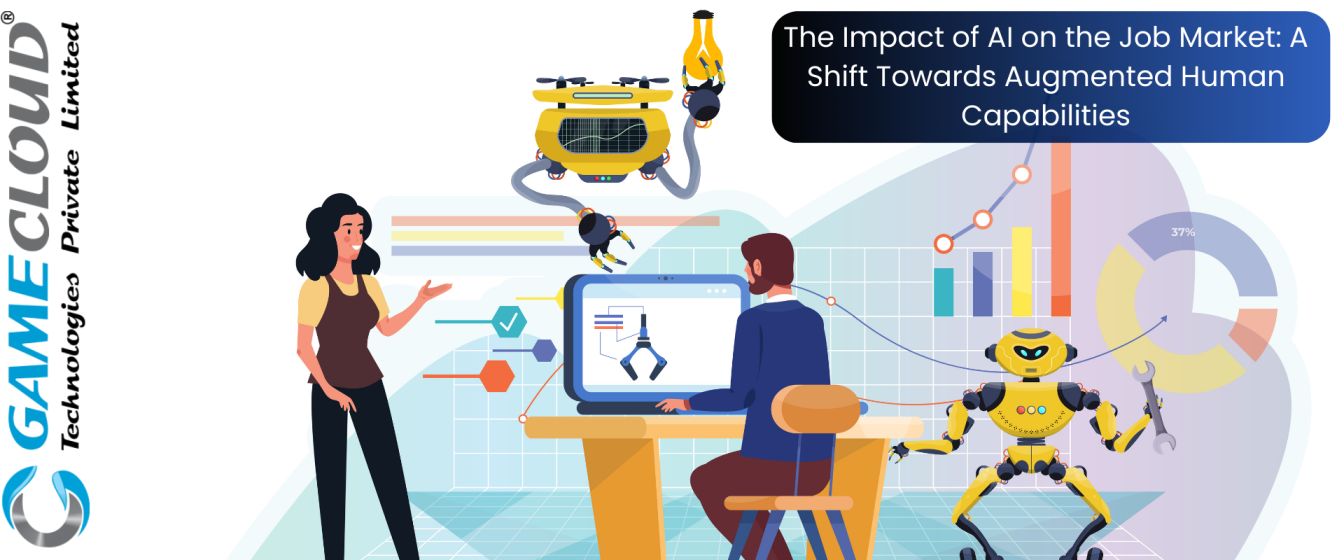
AI is rapidly transforming various sectors, reshaping how industries operate and how tasks are performed. From enhancing productivity in manufacturing to improving customer service through chatbots, AI’s influence is pervasive. For instance, the global AI market is projected to grow significantly, potentially contributing $15.7 trillion to the global economy by 2030. This reflects AI’s extensive integration into business operations and everyday applications.
Understanding AI’s impact on the job market is crucial as it poses both opportunities and challenges. AI is not only automating routine tasks but also augmenting human capabilities, enabling workers to focus on more complex and creative activities. This shift is creating new job roles while transforming existing ones. The World Economic Forum estimates that AI will create 97 million new jobs by 2025, even as it displaces others.
Augmented Human Capabilities: Enhancing Productivity and Efficiency
AI is increasingly recognized as a tool for augmenting human capabilities rather than replacing jobs. In sectors like IT and customer service, AI enhances productivity by taking over routine tasks and enabling workers to focus on more complex and strategic activities. For instance, AI-powered chatbots can handle customer inquiries, allowing human employees to concentrate on resolving more intricate issues.
Statistics show that 72% of businesses using AI extensively report high organizational productivity compared to 55% of those with limited AI use. This demonstrates AI’s significant role in boosting efficiency and productivity across various industries. By automating repetitive tasks, AI allows employees to engage in creative and innovative work, ultimately driving business growth and enhancing job satisfaction.
New Opportunities and Skills in the AI-Driven Job Market
The integration of AI into various sectors is giving rise to new job roles such as AI specialists, data scientists, and AI ethicists. These roles are becoming increasingly vital as businesses seek to harness the power of AI to enhance operations and decision-making processes. For instance, the average salary for an AI engineer in the United States ranges from $136,620 to $174,713, reflecting the high demand for these skills.
To meet the demands of the AI-driven job market, reskilling and upskilling the workforce is crucial. Nearly 44% of all job skills will need to change in the next five years to stay relevant. Educational and training programs focused on AI and related technologies are essential to prepare workers for these emerging roles. Many companies are already investing in such initiatives, with the expectation of seeing a return on investment within a year.
Furthermore, AI has the potential to democratize access to advanced skills and opportunities. Online learning platforms provide equal opportunities for individuals to acquire new skills, irrespective of their educational background. This shift not only enhances individual capabilities but also ensures a more inclusive growth as AI continues to transform the job market.
Ankatmak.ai: Navigating the Future with AI
At Ankatmak.ai, a division of the renowned GameCloud Technologies, we specialize in AI Outsourcing, Prompt Engineering, and IT Consultancy. Building on GameCloud’s decade-plus expertise, we offer a range of engineering skills, AI-assisted content creation, and custom AI solutions, including Chatbots and Educational & Training Modules. Our services guide clients through the complexities of the digital landscape, ensuring tailored, cutting-edge AI and IT consultancy. At Ankatmak.ai, we embody GameCloud’s vision of leveraging AI for innovative solutions across various technical domains.
Conclusion
AI has significantly augmented human capabilities, creating new job opportunities and transforming industries. Proactive measures are essential to harness AI’s potential while addressing these challenges and ensuring a balanced and beneficial integration into the job market.
